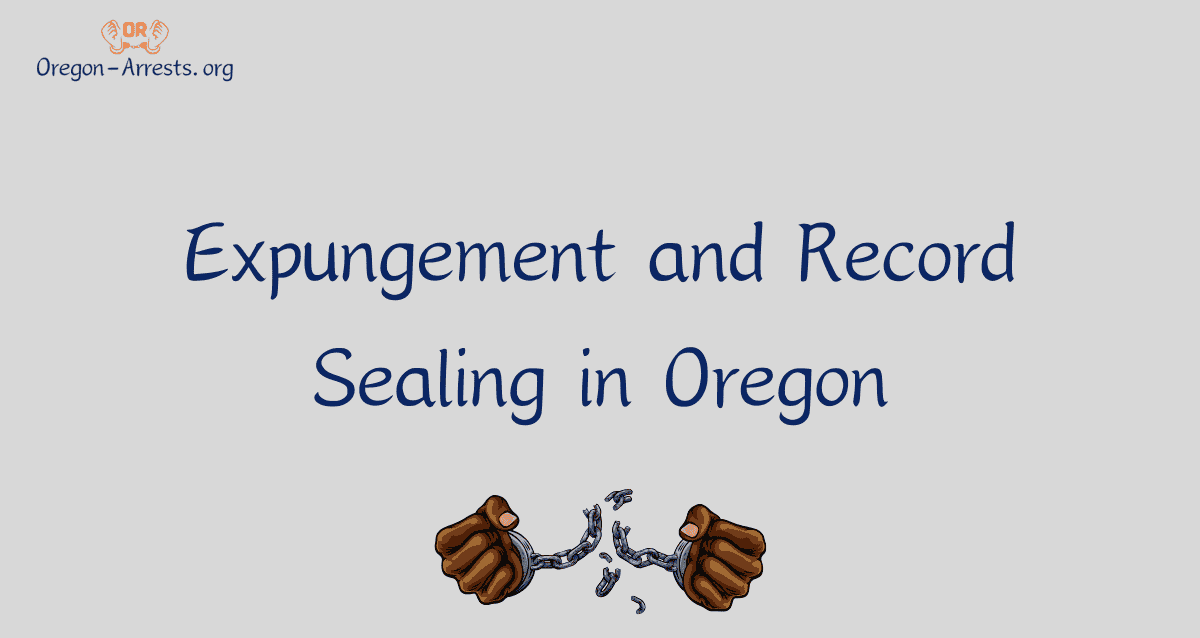Expungement and Record Sealing in Oregon
Expungement refers to the legal process of erasing or sealing criminal records, making them inaccessible to the general public. On the other hand, record sealing involves placing certain criminal records under restricted access, limiting who can view them.
Expungement and record sealing are crucial for convicted criminals who have since rehabilitated themselves. These processes provide them with a fresh start by removing or limiting the visibility of their criminal records.
Expungement in Oregon
Eligibility criteria for expungement
In Oregon State, individuals may be eligible for expungement if they have completed their sentence, paid all fines and restitution, and have had no subsequent criminal convictions.
Process of expungement
The expungement process in Oregon involves filing a petition with the court, providing relevant documentation, and attending a hearing. The court will order to delete the individual’s criminal records if approved.
Benefits of expungement
Expungement in Oregon allows individuals to legally deny or omit their past criminal records when applying for jobs, housing, or educational opportunities. It also restores certain rights, such as the right to possess firearms.
Record Sealing in Oregon
Eligibility criteria for record sealing
In Oregon, individuals may be eligible for record sealing if they were arrested but not convicted if the charges were dismissed or acquitted.
Process of record sealing
Record sealing involves filing a petition with the court, providing necessary documentation, and attending a hearing. The court will then determine if the individual’s records should be sealed from public view.
Benefits of record sealing
Record sealing in Oregon ensures that certain records related to an individual’s arrest or criminal charges are not accessible to the general public. This can be beneficial when applying for jobs, housing, or other opportunities.
Differences between expungement and record sealing
Legal implications
Expungement completely erases an individual’s criminal records, while record sealing restricts access but does not erase them. Expunged records are typically not visible to the public or law enforcement agencies, while sealed records may still be accessible under certain circumstances.
Accessibility of sealed or expunged records
In Oregon, deleted records are generally not accessible to the public or employers. However, certain entities, such as law enforcement agencies, may still have access to expunged records. Sealed records may be accessible to specific individuals or agencies under limited circumstances.
FAQs
What is expungement and record sealing?
Expungement and record sealing are legal processes that allow individuals to have their criminal records cleared or sealed from public view. This means the records are no longer accessible to the general public or potential employers during background checks.
Who is eligible for expungement and record sealing in Oregon?
In Oregon, individuals convicted of certain crimes who completed their sentences and met specific eligibility criteria can apply for expungement or record sealing. Eligibility criteria may include the type of offense, the number of convictions, and the time that has passed since the conviction or completion of the sentence.
What are the benefits of expungement and record sealing?
Expungement and record sealing provide individuals with a fresh start by removing the stigma associated with a criminal record. It allows them to pursue employment, housing, and educational opportunities without the burden of their past convictions. It also helps to protect their privacy and reputation.
How does the expungement process work in Oregon?
To start the expungement process, individuals must file a petition with the court that handled their original conviction. The petition must include details about the conviction, the case number, and supporting documents. A hearing may be required, and the court will review the petition and determine if it meets the eligibility requirements.
How long does the expungement process take in Oregon?
The expungement process in Oregon can take several months to complete. The timeline may vary depending on the case’s complexity, the court’s schedule, and the number of processed petitions. It is essential to consult with an attorney or legal professional to understand the specific timelines and requirements.
Conclusion
Expungement and record sealing in Oregon are legal processes that allow individuals to erase or restrict access to their criminal records. These processes are essential for those seeking a fresh start and the ability to move forward without the burden of their past mistakes.
Due to the complexities of expungement and record-sealing laws in Oregon, individuals must seek legal advice from experienced attorneys. Legal professionals can guide them through the eligibility requirements and the petitioning Process and ensure all necessary documentation is provided.







